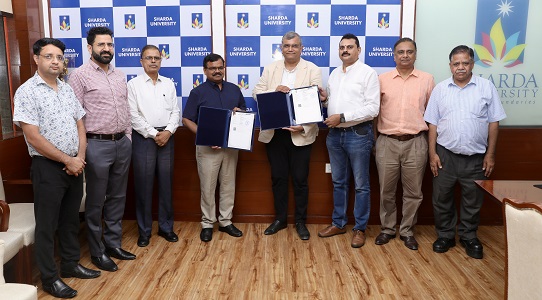[Indian Bureaucracy]: In a huge win for India, the International Court of Justice (ICJ) today ordered Pakistan not to execute Kulbhushan Jadhav – accused of spying by Pakistan and later given death sentence by a Pakistani military court – till a final decision is taken by the United Nations court.
“It is appropriate for the court to order that Pakistan take all measures at its disposal to ensure mister Jadhav is not executed before this court has given its final decision,” said presiding ICJ judge Ronny Abraham, reading the court’s unanimous decision.
While ordering Pakistan not to execute Jadhav, Judge Abraham noted that Jadhav has been granted a 150-day preiod to seek clemency. The period ends in August, which means that Jadhav’s execution could happen immediately thereafter, Abraham further noted.
While reading out the verdict in The Hague today, Abraham also rejected Pakistan’s contention that the world court had no jurisdiction in the Jadhav death sentence case. Judge Abraham said that prima facie, the court has the jurisdiction.
The ICJ’s ruling came after New Delhi asked to World Court to indicate provisional measures stopping Pakistan from executing Jadhav until the ICJ can hear the merits of the case in full.
The India case against Pakistan rested primarily on the argument that the latter had violated the Vienna Convention on Consular Access by not allowing New Delhi consular access to Jadhav.
HERE ARE THE LATEST UPDATES:
- ICJ says Pakistan can not execute Kulbhushan Jadhav till it delivers final verdict in the case.
- ICJ says prima facie it has the jurisdiction to decide on the matter.
- ICJ overrules Pakistan contention on jurisdiction.
- The Vienna convention doesn’t exclude those found guilty under terror and espionage… The Court considers that it has prima facie the jurisdiction to entertain dispute of the parties. India entitled to seek consular access to Jadhav: ICJ.
- Pakistan should have given consular access to Kulbhushan Jadhav
- ICJ has jurisdiction over dispute over Vienna Convention
- India and Pakistan have been party of Vienna Convention since 1977
- Justice Ronny Abraham, President ICJ, reading out verdict in Kulbhushan Jadhav death sentence
- The circumstances of Jadhav’s arrest remains in dispute between India and Pakistan: ICJ
- The top world court begins reading the order.
- International Court of Justice starts hearing into Kulbhushan Jadhav death sentence case.
- Indian delegation arrives at the ICJ. India is being represented by senior lawyer Harish Salve.
- 11-judge bench of the top UN court at The Hague, Netherlands, to decide whether the stay on Jadhav’s death sentence will continue.
- ICJ to deliver interim verdict in Kulbhushan Jadhav death sentence case at 3.30 pm
- Responding to India’s petition, ICJ president Ronny Abraham wrote to Pakistani Prime Minister Nawaz Sharif asking Islamabad to desist from executing Jadhav until the court heard the matter. The public hearing was held on May 15 at The Hague, Netherlands.
- India moved the International Court of Justice on May 8, charging Pakistan with “egregious violations of the Vienna Convention on Consular Relations” in the matter of the detention and trial of Kulbhushan Jadhav. This was the first time in 18 years that India and Pakistan arrived at ICJ doorsteps and the first time since 1971 that New Delhi took Islamabad to the World Court.
THE JADHAV CASE IN ICJ
New Delhi took Islamabad to the The Hague, Netherlands-based International Court of Justice after a Pakistani military court convicted Jadhav of espionage and sentenced him to death.
India has contended that Pakistan violated the Vienna Convention on Consular Access by not allowing New Delhi consular access to Jadhav. At the ICJ hearing on Monday, India, represented by Harish Salve, further said Jadhav’s sentence violated international law and asked the 11-judge court to issue a provisional ruling that would prevent Pakistan from executing Jadhav until the ICJ can hear the matter in detail.
Since Jadhav’s arrest in March 2016, India has sought consular access 16 times. Pakistan has rejected each and every request, claiming that since Jadhav is charged under espionage, Islamabad does not need to grant New Delhi consular access to him.
Apart from this argument, Pakistan, during the public hearing at the ICJ on Monday, also said that World Court has no jurisdiction in the matter and hence, India’s request must be rejected.
India invoked the Optional Protocol of the Vienna Convention to contend that the ICJ has jurisdiction in the case. The Optional Protocol says that all disputes relating to alleged violation of the Vienna Convention fall under the compulsory jurisdiction of the ICJ.
Jadhav, a former Indian Navy-turned businessman, was sentenced to death in April this year by a Pakistani military court. Jadhav was found guilty of a being a Research and Analysis Wing (RAW) agent and of fermenting unrest in Pakistan’s Balochistan, from where, Islamabad claims, Jadhav was arrested.
India slammed Pakistan for conducting a “farcical”, secretive trial and said that Jadhav was kidnapped from Iran and later brought to Balochistan. Vowing to do everything necessary to secure Jadhav’s release, New Delhi said that Jadhav’s death sentence, if carried out, would be treated by India as “pre-meditated murder”.





